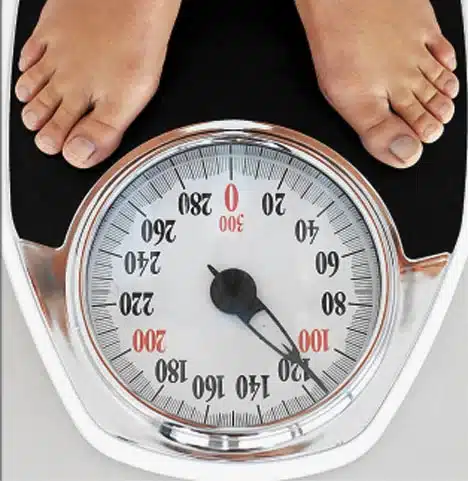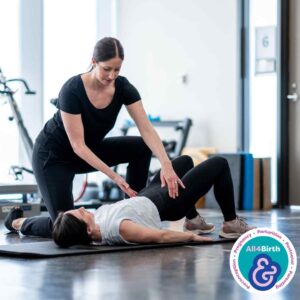Yoga in Pregnancy- More than just an exercise class
Cáitlin Heavey
Yogabirth Teacher and Doula
www.caitlinheavey.co.uk Yogabirth classes and courses in person and online. Edinburgh based Birth Doula services at home & in hospital.
Instagram @caitlinheavey_yogabirth
Summary
Yoga for pregnancy is a system of bodywork, accessible to all, that includes specially adapted postures and movements, breathing awareness and mindful relaxation techniques. Many yoga postures and breathing practices are similar to what is used in instinctive labour and so, practising these during pregnancy can help a pregnant person to explore their potential for more active birth. Joining a class during pregnancy can also help to foster community and relationships that can be supportive in early parenthood.
Yoga in Pregnancy Myths
- It’s only for skinny people
- It’s only for white people
- It’s only for bendy, stretchy people
- It’s only for those planning a natural birth
- It’s only for those who’ve done yoga before
The prevalent social media image of yoga doesn’t help, with a proliferation of beautiful bodies performing (and I use that word intentionally) impossible contortions with a backdrop of wellness paraphernalia (a buddha, a motivational affirmation or lots of fairy lights). The notion of joining a class can therefore be daunting for many.
Most of the women that join my Yoga classes have never practised yoga before, but they feel drawn to try yoga for the first time during pregnancy. Many say they come simply to learn how to relax, how to be more at ease in their bodies and most importantly to meet other pregnant people.
Having no previous yoga experience can in fact be a positive advantage as you have no pre-pregnancy yoga experience to compare it to and neither do you have pre-pregnancy yoga goals to let go of. You can’t be disappointed that your headstand is off, or your backbend doesn’t feel right anymore. The real practice of yoga is so different from the socials; in fact, your pregnant body and mind are demanding to feel that difference.
Your ligaments are softer, your joints are stretched more and you must learn to respect that and not push or force anything. The fact that your joints stretch more needs careful attention. Your body is opening to accommodate your growing baby; your rib cage is changing shape and your pelvis is opening. Stretching your body properly should work in harmony with these natural changes and not fight against them.
Your heart and breathing are under more pressure so finding a way to exercise that eases the strain on those systems may help it to feel less of a problem.
Your organs are feeling the pinch too as your baby presses on everything – even at night in bed! Anything that helps you to create space for you and your baby should feel good.
The hormones of pregnancy are also affecting your mind – you may crave solitude, connection, and a deepening desire to tune into a blissful, dreamy kind of feeling that endorphins can bring. If your anxiety and worry levels are high, learning ways to reduce the feelings around stress can benefit both you and your baby.
Yoga is a highly effective way of combining all of this: stretching and moving in harmony with the changes, breathing better and accessing the part of the human brain that needs peaceful thoughts and deep rest. It is no coincidence that this may also help during labour when all these requirements collide; the need to move, finding positions that you can both work and rest in, breathing to release stress, to better cope with the intense physical sensations of labour and to tap into that mammal brain that knows how to birth your baby safely. A good yoga for pregnancy class should include all of these so that you leave the class feeling energised and relaxed.

What is Yoga?
The word Yoga literally means Union, and this can be profoundly experienced during pregnancy as your body supports your growing baby, your breath nourishes both of you and your mind connects with your baby at the deepest level.
Yoga for pregnancy is the only system of ante-natal exercise that offers the whole package:
- You learn ways of moving that can help you to be more comfortable in your every day and are similar to active birthing positions.
- You learn different types of yoga breathing to calm the mind and promote relaxation. This can have a profound effect on stress and anxiety.
- Learning all about the mind-body connection that encourages you to tune in to your instincts, so important during labour as you learn to trust yourself.
- Learning to move and breathe well deepens the connection with your mind-body and can help with baby awareness and bonding.
- You learn meditation and visualisation techniques which encourage a calm and focussed mind, invaluable during labour but may help you to cope better with the challenges of parenthood.
Yoga in Pregnancy
It’s important to find a teacher that specialises in pregnancy yoga as they will have both the knowledge and experience to teach safely.
Yoga for pregnancy
- Helps with the common aches and pains of pregnancy: especially low back pain, hip pain, sciatica, rib pain and leg cramp by boosting circulation, moving joints, improving posture, lengthening, and strengthening muscles.
- Develops breath awareness
- Promotes functional pelvic floor awareness
- Develops mindful movement
- Promotes relaxation and calm
- Encourages upright, forward-leaning postures which are beneficial during physiological birth
- Builds strength and resilience with weight-bearing exercise
- Encourages self-trust and intuition
- Helps increase the rate of vaginal birth
- Helps shorten the 1st and second stages of labour
- Builds community with other pregnant people(1-10)
Links to resources
 Books
Books
Pregnancy Health Yoga with Tara Lee – Book and DVD
Yoga for Pregnancy, Birth and Beyond by Francoise Freedman
References
- Jiang, Q., Wu, Z., Zhou, L., Dunlop, J., & Chen, P. (2015). Effects of yoga intervention during pregnancy: a review for current status. American journal of perinatology, 32(6), 503–514. https://doi.org/10.1055/s-0034-139670
- Gong, H., Ni, C., Shen, X. et al. Yoga for prenatal depression: a systematic review and meta-analysis. BMC Psychiatry 15, 14 (2015). https://doi.org/10.1186/s12888-015-0393-1
- Polis, R. L., Gussman, D., & Kuo, Y. H. (2015). Yoga in Pregnancy: An Examination of Maternal and Fetal Responses to 26 Yoga Postures. Obstetrics and gynaecology, 126(6), 1237–1241. https://doi.org/10.1097/AOG.0000000000001137
- Kawanishi, Y., Hanley, S. J., Tabata, K., Nakagi, Y., Ito, T., Yoshioka, E., Yoshida, T., & Saijo, Y. (2015). [Nihon koshu eisei zasshi] Japanese journal of public health, 62(5), 221–231. https://doi.org/10.11236/jph.62.5_221
- Campbell, V., & Nolan, M. (2019). ‘It definitely made a difference: A grounded theory study of yoga for pregnancy and women’s self-efficacy for labour. Midwifery, 68, 74–83. https://doi.org/10.1016/j.midw.2018.10.005
- Bribiescas S. (2013) Yoga in Pregnancy. International Journal of Childbirth Education 28(3) 99-102
- Campbell, V. R., & Nolan, M. (2016). A qualitative study exploring how the aims, language and actions of yoga for pregnancy teachers may impact women’s self-efficacy for labour and birth. Women and birth: journal of the Australian College of Midwives, 29(1), 3–11. https://doi.org/10.1016/j.wombi.2015.04.007
- Sheffield, K. M., & Woods-Giscombé, C. L. (2016). Efficacy, Feasibility, and Acceptability of Perinatal Yoga on Women’s Mental Health and Well-Being: A Systematic Literature Review. Journal of holistic nursing: official journal of the American Holistic Nurses’ Association, 34(1), 64–79. https://doi.org/10.1177/0898010115577976
- Kwon, R., Kasper, K., London, S., & Haas, D. M. (2020). A systematic review: The effects of yoga on pregnancy. European journal of obstetrics, gynaecology, and reproductive biology, 250, 171–177. https://doi.org/10.1016/j.ejogrb.2020.03.044
- Yeboah, A., (2020). Effect of antenatal yoga on adverse psychological outcomes in pregnancy. Journal of Pelvic, Obstetric and Gynaecological Physiotherapy12, [online] Autumn(127), pp.12-25. Available at: https://www.csp.org.uk/system/files/documents/2020-08/05_yeboah.pdf [Accessed 7 January 2022].
















